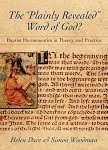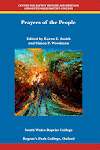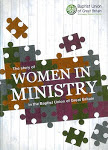A Sermon for Bloomsbury Central Baptist
Church,
3 December 2023
First Sunday of Advent
3 December 2023
First Sunday of Advent
Jeremiah 33.10-11, 14-18
Have you ever heard the expression,
where
someone is described as being ‘a right Jeremiah’?
As someone who has a generally sunny and optimistic
disposition,
I don’t
think it is something that’s usually said of me,
but I’ve occasionally thought it about others!
If you’re not familiar with the phrase,
calling
someone ‘a Jeremiah’ is saying that they’re, to put it kindly,
a
‘glass-half-empty’ kind of person.
A ‘Jeremiah’ is someone who is pessimistic about the
present,
and
foresees a calamitous future.
A bit like Eeyore, you might say,
or Marvin
the Paranoid Android,
or Kreacher
the House Elf.
One of the things about someone who’s a ‘Jeremiah’,
is that
they can often annoy those around them,
often because
they are right!
I mean, you only have to look at the way Greta Thunberg
has been
vilified in certain strands of the media
to see how little people like to be told
that the
climate crisis is real and imminent.
And certainly, the Jewish prophet of doom
from the 7th
Century BCE, Jeremiah himself,
made something of a career
of annoying
people with his dire predictions.
Like Private James Frazer in Dad’s Army,
Jeremiah
spent years telling his fellow citizens of Jerusalem
that they
were all doomed.
Their good life under King Zedekiah wasn’t going to last,
because the
Babylonians were coming.
At one level, Jeremiah’s predictions of Jerusalem’s downfall
to the Babylonian army
could have
been simply a case of him reading the political landscape,
and
seeing something in the wind
that
was going to turn into a whirlwind of destruction.
And if that had been all there was to it,
he might
not have made himself quite so unpopular.
I mean, saying,
‘Look,
there’s a large and powerful army getting closer,
I
think we should be prepared for the worst’
is not
hugely controversial.
But what Jeremiah did that annoyed everyone so much
was that he
pointed to the large Babylonian army
gathering
on the distant horizon,
and then
told King Zedekiah of Jerusalem
that
it was his fault the disaster was
coming.
Jeremiah wasn’t just a prophet of doom,
and he
wasn’t just right in his predictions,
he was also annoying
because he
firmly pointed his finger at the king as the one responsible.
By Jeremiah’s understanding, Zedekiah had led his country
in a way
that had taken it away from where God wanted it to be.
He had prioritised war over peace,
nationalism
over cooperation,
and
he was about to reap the consequences of his actions - said Jeremiah.
So, by the time we get to the passage that is our reading
this morning,
Jeremiah is
languishing in the palace dungeon in Jerusalem,
where
Zedekiah has dumped him in an attempt to shut him up.
And it’s so often the case, isn’t it,
that those
who hold political power
will go to
extraordinary lengths to silence those who critique their power.
And yet the prophetic voice refuses to be silenced.
Eventually, truth will out.
Oppression,
bigotry, and powerful vested interests
don’t get
to silence the uncomfortable voices of the prophets forever.
One of my favourite Paul Simon songs, and I have many,
is called
‘The Sound of Silence’,
and I don’t know whether Paul Simon had Jeremiah in his
prison cell in mind
when he
wrote this song, but he certainly could have done.
I’ll read the words of the last verse now,
and my
invitation is to hear this as the cry of the silenced prophet in any age:
"Fools" said I, "You do not know
Silence like a cancer grows.
Hear my words that I might teach you
Take my arms that I might
reach you"
But my words like silent raindrops fell
And echoed
In the wells of silence.
And the people bowed and prayed
To the neon god they made.
And the sign flashed out its warning
In the words that it was
forming,
And the sign said, "The words of the prophets
Are written on the
subway walls
And tenement halls"
And whispered in the sounds of silence.
My apologies if that’s just planted an ear-worm
that you’re
going to be stuck with all day.
But Jeremiah, and those like him, will not be silenced,
despite the
fact that they are rejected
for
proclaiming a message
that is not
only pessimistic,
but
which requires a change to society’s destructive patterns of behaviour
if
the disaster is to be averted.
The thing is, the masses hate a Jeremiah,
and we all
love an optimist.
It’s so much easier to vote for the confident sunny disposition
of the
person promising easy answers to complex questions,
than it is to admit that reducing geopolitical and economic
complexities
to binary
options is dangerously simplistic.
And those who offer optimism in place of realism,
denying the
warnings of the prophets,
and
silencing the voices of concern,
too often resort to the easy option of placing Jeremiah back
in his dungeon,
and hoping
desperately that it will all work out OK.
But Jeremiah and those like him will not be silenced.
And denying
the problems they proclaim
doesn’t
make them go away.
And so Jeremiah continues to speak,
from his
dungeon beneath the palace.
But what is so interesting,
is that the
words he issues from his confinement
contain a
surprising message of hope.
Sometimes, I find myself almost in despair at the world,
I worry
about global warming,
I
worry about the rise of the far right in Europe,
I worry
about the proliferation of weapons of mass destruction,
and
I worry about terrorism,
about
mass migration,
and
about oppression and injustice around the world.
Sometimes, even sunny optimistic Simon,
can find
himself becoming a bit of a Jeremiah.
How about you?
So what does Jeremiah say next?
Does he
continue with his message that ‘we’re all doomed’?
Well, yes and no.
There’s no escape for Jerusalem from the Babylonian army on
the horizon,
the city
will be besieged, overthrown, and the people taken into exile.
But nonetheless Jeremiah explores a sense of what hope might
look like
in the face
of the depressing message of imminent destruction.
Jeremiah’s message is both deeply troubled,
and deeply
hopeful.
At the time of his imprisonment,
where we
meet him in chapter 33 of the book that bears his name,
there are
no obvious signs of hope.
The Babylonians are coming,
and despair
and destruction are coming to his beloved city.
But still he speaks of hope,
which comes
not from a denial of the realities before him,
but from a
deep grappling with despair.
And I find myself thinking here about a depth of
spirituality
that can
embrace both hope and despair.
Too often my experience of church life over the years,
has been
that we are converted from despair to hope,
as if despair were some kind of sinful or shameful state,
from which
we need salvation.
Well, Jeremiah offers us a more integrated model here,
as he holds
hope and despair together before God.
The hope he proclaims from the depths of despair,
is
something that challenges the realities of the present;
something which alters the way in which one lives in the
here and now,
by
articulating a new, transformative, way of being.
So, he says, one day… one day that is surely coming…
God will
cause a righteous branch to spring up for David.
Understanding quite what he means by this
requires us
to know a bit about the Jewish story.
For the Jews of Jeremiah’s time, their security was tied up
deeply
with their
monarchy was a gift from God.
So the stories of David, their archetypical king of ancient
times,
defined
their nation,
their
understanding of who they were,
and
who they were called by God to be.
For the Jews the time of the Babylonian invasion,
the stories
of King David functioned a bit like the way
the stories
of King Arthur functioned for Victorian England.
Just as the legend of Arthur, Merlin, and Uther Pendragon,
forged the
mythology that sustained the English Empire,
So the tales of Saul, David, and Solomon
undergirded
the ideology of Israel as God’s chosen people.
And in the face of the Babylonian invasion,
that
ideology was being shaken to its core.
If Zedekiah was to be killed, if Israel was to lose its
king,
then all
God’s promises would be questioned.
This wasn’t just a political crisis that Jeremiah was living
through,
it was a
crisis of faith.
And so, he says, just as a new branch can spring from the
stump of a felled tree:
even if
Israel is toppled by the Babylonians,
God
has not forgotten the promises made in olden days,
and a new
branch will spring up for David.
Jeremiah wasn’t the only prophet to use this image
of a branch
of David arising from the roots of a felled tree;
we find it in Isaiah as well,
who uses
the name of Jesse, King David’s father, and says:
Isaiah 11.1, 10
A shoot shall come out from the stump of Jesse,
and a branch shall
grow out of his roots.
On that day the root of Jesse shall stand as a signal to the peoples;
the nations shall
inquire of him, and his dwelling shall be glorious.
And this passage from Isaiah, together with our reading from
Jeremiah,
stayed with
the people of Israel through their time of exile,
and sustained
their hope through the years of despair.
And then something interesting happened,
because
even though the exile eventually came to an end,
and
the exiles were restored to
Jerusalem, with their monarchy re-established,
the hope
that a better time, a better leader, was coming,
didn’t
go away.
What we are seeing here, in our reading from Jeremiah,
and it’s
parallel in Isaiah,
is the birth of what became the Jewish hope for a coming
messiah.
You see, even though the end of the exile marked a partial
restoration,
the extent
of Israel’s borders never got back
to
where the stories said they had been in the time of King David;
their kings
never had the political strength and autonomy
that
the stories of David eulogised and lauded,
and instead
the restored Israel existed as a puppet nation,
ruled
by puppet kings,
controlled
and at the mercy of whatever empire was dominant,
from
the Babylonians to the Greeks to the Romans.
So the seed of hope for a righteous branch for David,
planted by
Jeremiah and nurtured through the despair of exile,
grew into the hope for a coming messiah
a son of
David who would restore Israel’s faith and dignity before God.
But I’m jumping too far….
Let’s stay with Jeremiah for a few moments longer,
and re-join
him in his dungeon in the palace in Jerusalem,
with the
Babylonian army on the horizon.
Because Jeremiah tells us, from the literal pits of despair,
what this
hope will look like.
For Jeremiah, hope looks like justice, and righteousness,
which are
nowhere to be seen in his world.
He articulates a hope that someone will come,
who will
embody justice and righteousness.
This is a mind-altering moment,
and it sets
the agenda for everything that follows.
What, he asks, would it mean
for God’s
justice and righteousness to be embodied and enacted?
What would it mean for someone to live out
God’s
eternal intent of setting things right?
What would it mean for the kingdom of Israel,
to become
the Kingdom of the Lord, who is righteousness and justice?
It is an astonishing articulation of hope,
in the face
of overwhelming despair.
In Jeremiah’s world, righteousness and justice are gone,
and for him
to assert that God is righteous, and that God is just,
and that
God has not yet finished with his people,
is a narrative of hope that has the capacity to change the
world.
But here’s the thing,
Jeremiah
says all this, when the reality of it is nowhere to be seen.
And to leap forward now to the coming of Jesus,
(we are,
after all, now in Advent),
it is not immediately clear that God is putting things right by sending a child,
who will be
born in difficult circumstances and flee his home as a refugee;
it is not immediately clear that God is putting things right
through the
horror of a crucifixion and the rumour of a resurrection.
And yet, Jeremiah says that he is so certain of his hope,
that
Jerusalem itself will be renamed,
and it
shall be called ‘The Lord is our righteousness’.
The hope that Jeremiah proclaims is not dependent on any
human activity,
it is
dependent on God’s action.
He is saying that it is always God
who
gives new life in place of death,
and that it
is only God who brings new righteousness and justice
into
the very heart of the place where despair is most deeply felt.
If Jerusalem, the city of death and destruction in
Jeremiah’s time,
can be the
place where hope enters the world,
then hope can come to anywhere that despair is at its worst,
whether
that is lonely solitude of the human heart,
the
corporate victims of an act or terror,
or the
communal hell of a besieged city in Gaza.
And so, because it is Advent,
we come at
last to Jesus;
who asked his disciples, ‘But who do you say that I am?’
and his
friend Peter answered him, ‘You are the messiah’ (Mark 8.29)
Within the Christian story,
the hope of
Jeremiah and Isaiah is fulfilled in Jesus,
who embodies God’s righteousness and justice,
bringing
hope to all those whose lives are lost in despair.
And for those of us who find ourselves living in turbulent
times,
not knowing
who to believe, or where to go for truth,
the living hope that is Jesus,
made known
to us by his Spirit,
and encountered in one another as we gather in his name,
gives us a
hope that will sustain us
And so we pray, again, the Advent prayer
of longing
for a world transformed.
“Come, Lord Jesus, Come.”















